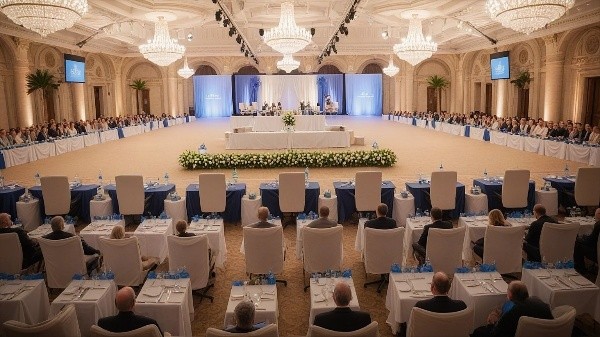Iran’s Plan to Strike Back Against the U.S.
Iran’s Military Preparations Following U.S. Attacks
Loading...

Muslim and Arab leaders at an extraordinary summit in Riyadh demanded that Israel immediately stop its deadly hostilities in the besieged Gaza Strip and Lebanon.
Summit in Riyadh Calls for Immediate Action
In a significant gathering held in Riyadh, Muslim and Arab leaders have urgently called for an immediate cessation of Israel's military actions in the besieged Gaza Strip and Lebanon. This extraordinary summit, which involved over 50 leaders from various Arab and Islamic nations, aimed to address the escalating violence and humanitarian crisis resulting from Israeli hostilities.
Condemnation of Israeli Actions
Saudi Crown Prince Mohammed bin Salman took center stage at the summit, strongly condemning what he described as a “massacre committed against Palestinian and Lebanese people.” His passionate address urged Israel to “refrain from any further act of aggression,” emphasizing the need for a swift end to the violence that has led to immense suffering in both regions.
Echoing the crown prince's sentiments, Ahmed Aboul Gheit, the Secretary-General of the Arab League, expressed deep concern over the situation. “Words cannot express the plight of the Palestinian people,” he stated, underscoring the devastating impact of Israel's military campaign. He further emphasized that the ongoing actions are severely undermining efforts aimed at achieving lasting peace, insisting that **justice is a prerequisite for stability in the region**.
Calls for Solidarity and Humanitarian Aid
Palestinian President Mahmoud Abbas addressed the gathering with a plea for Arab and Islamic nations to unite in solidarity with the Palestinian people. He called for the urgent implementation of a United Nations resolution aimed at halting Israeli aggression and facilitating the delivery of much-needed humanitarian aid to Gaza. His call for unity resonated with the leaders present, reflecting a collective demand for international intervention and support.
Jordan's King Abdullah II also condemned Israel's military operations, particularly the spillover of conflict into Lebanon. He advocated for increased humanitarian assistance to alleviate the suffering of those affected by the violence in Gaza.
Lebanese Prime Minister Najib Mikati highlighted the severe impact of the conflict on Lebanon, stating that the nation is grappling with an “unprecedented historical crisis.” He cited estimates from the World Bank indicating that Israeli aggression has resulted in approximately **$8.5 billion in damages**, encompassing both economic losses and destruction of homes. His remarks served to underline the dire humanitarian situation facing Lebanon as a consequence of the ongoing conflict.
The Role of Regional Leaders and Organizations
In a call to action prior to the summit, Hamas emphasized the need for an alliance of Arab and Islamic nations to exert pressure on Israel and its allies to halt the atrocities in Gaza and Lebanon. While Iranian President Masoud Pezeshkian could not attend the meeting due to prior commitments, he ensured that Iran's First Vice President Mohammad Reza Aref would represent the country at the summit.
This meeting comes a year after a similar assembly of the Arab League and the Organization of Islamic Cooperation (OIC), which condemned Israeli actions in Gaza as “barbaric.” The urgency of the current summit highlights the escalating situation and the need for a unified response from the international community.
Prioritizing Action for Peace and Stability
In the lead-up to the summit, Saudi Foreign Minister Prince Faisal bin Farhan chaired a preparatory ministerial meeting, emphasizing the necessity of urgent action in light of the “escalating violence in the Palestinian and Lebanese territories.” The Saudi Press Agency reported that key priorities discussed included halting aggression, protecting civilians, and providing support to the affected populations.
The leaders' collective focus on unifying positions and exerting pressure on the international community underscores a profound commitment to ending the ongoing violence and establishing lasting peace and stability in the region.
Editor
Iran’s Military Preparations Following U.S. Attacks
Troops remain in five strategic locations, raising fears of renewed tensions and long-term occupation.
Opposition forces have taken control of the capital after a significant offensive. Here is how it unravelled.
